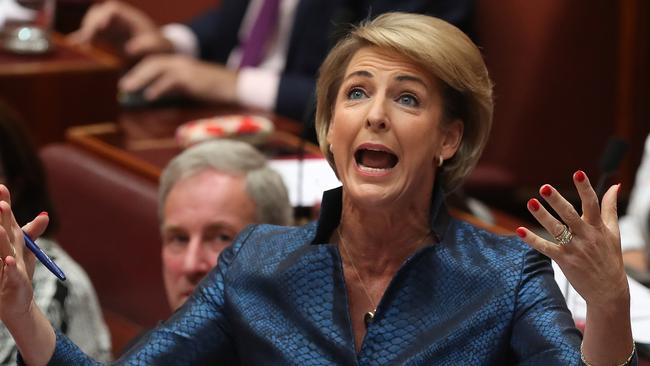The Coalition needs a small business lifeline
Winning back small business and kicking an election down the road to November is the Coalition’s only realistic chance.

During the Christmas holiday break two fundamental changes took place in the Australian political scene. Media focus has been on the Coalition and women, so neither has been reported. Yet both will be big forces in the political and business events that emerge in 2019.
The first fundamental change was the discovery by a large number of the Liberal Coalition federal members that the only hope they have of establishing a sustainable support base is to become a small business party.
Paradoxically, few governments have treated small business with more disdain than the Abbott-Turnbull-Morrison ministries. Lower tax rates for small business were blanketed by stupid policies in other areas. It will not be easy for the Liberals to embrace a small business strategy, because the party’s connections are with large businesses. But, thanks to the new small business minister Michaelia Cash and assistant treasurer Stuart Robert, for the first time for decades the party actually has a series of extremely good small business policies.
And as luck would have it the ALP is planning to give small business a good hard kick.
The second fundamental change is understood by few in the Coalition but dominates ALP strategies.
The ALP has discovered just how badly the community views the instability in the Coalition government, demonstrated by its churning through three prime ministers. And that fury is multiplied by the fact that in the public mind, the Coalition is linked to big business and the big corporation executives who came across in the banking royal commission as bonus-seeking crooks.
Nowhere is that fury more intense than in small business. Led by small business, the electorate wants to punish the Coalition and that punishment will be delivered at the first available election.
So intense is the fury among small businesses that between now and the election it won’t matter what actions the Coalition takes or what policies the ALP dreams up. The electorate wants to vent its fury at the multiple prime ministerships in one electoral term.
Accordingly the strategy of the ALP is to harness this hostility towards the Coalition by forcing a House of Representatives election as soon as possible.
Labor will make life as miserable as possible for the current government, hoping to get it to the polls in March. But even if a March election is not possible, the Coalition has promised a House of Representatives election in May, at the same time as the required half Senate election.
If Liberal members move around the small business community they will soon discover that if they allow the electorate to vent their fury in a May House of Representatives election the Coalition will be murdered. It’s far better to confine the murder to the Senate.
Indeed the greatest danger for the ALP is for the Coalition to somehow run the House of Representatives for a full term until November, while holding a half Senate election in May. While the pent up fury will be directed at Coalition senators by the time November comes around, that fury will have been dissipated — it will be back issues. And the Coalition will have actually undertaken three brilliant small business policies that it can market. The first policy is a truly independent appeal process for small business tax claims. This will stop the current mindless campaigns that the ATO devises to attack small business. The ATO is an organisation that embraces “power without integrity”.
Secondly the government will force 30 day payments to small enterprises by both government and large corporations. Thirdly it will adopt the Sims recommendation on unfair contracts. These are excellent policies. Add the tax cuts and it shows the Coalition is serious. Once the fury has dissipated through a half senate election this stance can be promoted around the land.
The Coalition also has the “free kick” from the ALP. Most of the commentary on the ALP retirement and pensioners tax has naturally concentrated on the blows planned for retirees and pensioners. But there is a secret weapon which the ALP plans to use to make life tougher for smaller enterprises.
Many small enterprises do not have extensive superannuation, but instead they save their profits in the business and have a pool of franking credits. They plan to pay out the dividends after either selling the business, transferring it to family or just closing it down. When those dividend payments are made, the retirees will have no other income, so franking credits will be paid in cash, and under ALP policy these franking credits will be lost. It is a huge blow the retirement of hundreds of thousands of small business people. It will lower the value of small business — a value already trimmed by the capital gains tax increases.
I don’t think the ALP had any idea of the horrors they were unleashing with their retirement and pensioners tax. Originally, it was all about attacking rich people. But instead, it is targeting retired battlers and small business. If the government enacts its small business initiatives, allows the voter fury to be absorbed in a half senate election in May and then campaigns like crazy on small business issues between May and November, the election result could be a lot closer than it would be if a House of Representatives election was held in May.
But the good news for the nation is that conservative forces in the parliament have woken up to the way they can develop a support base to at least try and match the ALP’s union base. But of course small business is a lot less organised than unions and requires a lot more work by politicians. But it is also a lot bigger.




To join the conversation, please log in. Don't have an account? Register
Join the conversation, you are commenting as Logout